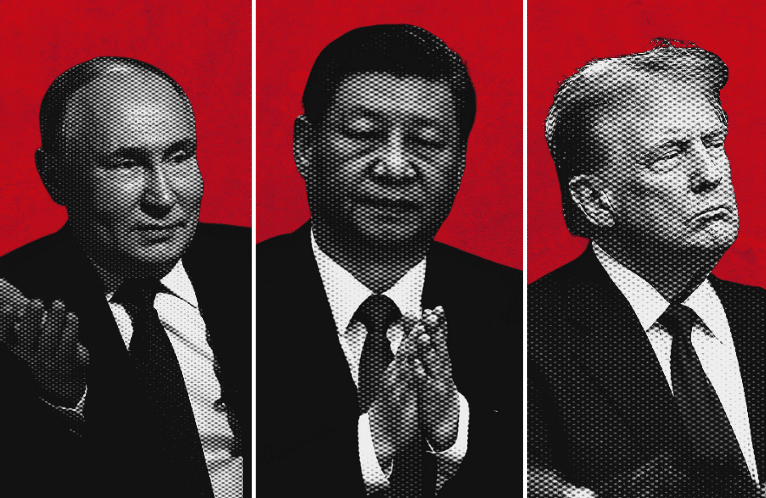Interview with Zhou Wenxing: Cross-Taiwan Strait Relations in the Next Few Years—Is War Inevitable?
Chinese Firms Go On A Buying Spree For American Companies
Stock markets in China may be in bear market territory, but that has not stopped Chinese firms from going on a buying spree for American companies.
Direct investments from China put over $15 billion into transactions in the U.S. last year, a near-30 percent increase compared to the previous year and a new all-time high. Early indication points to 2016 as yet another record year for Chinese investments, according to a report by the National Committee on U.S.-China Relations and a research firm Rhodium Group.
“In 2016, China’s outbound foreign direct investment (OFDI) will likely grow even faster than in previous years,” the report said. “A more pronounced slowdown in economic growth and concerns about the stability of the renminbi exchange rate have visibly accelerated the pace of Chinese deal-making abroad since mid-2015, with a record $100 billion of announced M&A transactions worldwide in the first three months of the year.”
A significant share of that capital outflow has already found a home in North America. So far this year, 72 deals (including merger/acquisition and private placement) valued at over $7.5 billion have closed and 27 new deals valued at over $33 billion targeting U.S.-based companies have been announced. This compares to 59 deals valued at $2.9 billion closing during the same period last year, per data compiled by S&P Capital IQ.
It’s not only the number of deals but also the size of those transactions that’s grown over the years. The average deal announced so far this year is a whopping $1.5 billion, an eight-fold increase from last year.
Moreover, of 27 deals announced this year, five are valued in excess of a billion dollars each and include high-profile transactions such as the acquisition of luxury hotel owner Strategic Hotels & Resorts byAnabang Insurance Group for $8.2 billion, Ingram Micro by TianjinTianhai Investment for $7.2 billion (upon completion of the transaction, Ingram Micro will operate as a subsidiary of TianjinTianhai, consolidated under HNA Group) and GE Appliances by Qingdao Haier for $5.4 billion.
The inflow of Chinese capital into the country in recent years has also attracted the attention of the global investment community. For private equity firms that traditionally focused on buying and selling American and European companies, Chinese clients present a welcome alternative.
“Unlike in the past, we have now begun looking for Chinese buyers because of the significant increase in investments by Chinese companies in the U.S.” said Abhaya Shrestha, a principal at a New York private equity firm Corinthian Capital LLC. “In fact, we are currently in the process of selling a company which is based in the U.S. When thinking of potential buyers to reach out to, one of the groups we focused on was buyers from China.”
The Chinese OFDI that began in the early 2000s with investments in Australian and Canadian commodity firms now spans across countries and various sectors. Chinese capital has recently begun to flow into non-extractive sectors in advanced economies of Europe and the Americas, according to a joint report by Asia Society of Northern California and the Rhodium Group.
The report further cites the explosion of technological innovation in the U.S. and access to high-tech companies in the country as being the driving factors in Chinese firms increasingly targeting technology companies in recent years.
Indeed, of the 72 transactions that already closed this year, 39 involved technology companies worth more than $2 billion. Those included the acquisitions of Intel‘s Portfolio of Patents and OmniVision Technologies by Xiaomi and a consortium of buyers led by CITIC Capital Partners, respectively.
Another sector that has seen significant Chinese investment recently is tourism and hospitality. According to the Rhodium report, “investments in 2015 included hotels (among them the Red Lion Hotels, Waldorf Astoria New York, Waldorf Astoria Chicago, and the Hyatt Regency Orange County), golf courses (including more than 20 Myrtle Beach golf courses in South Carolina), and travel logistics (such as new operations by Hainan Airlines in San Jose).”
Despite growing Chinese investments in recent years, experts fear the rising politicization in the U.S. can pose a risk to incoming investments which could drive away Chinese capital to other advanced economies of North America and Europe. The current presidential election cycle has, in some ways, already elevated the rhetoric.
By PRADIP SIGDYAL and ERIC CHEMI May 9, 2016 on CNBC
Read more here








